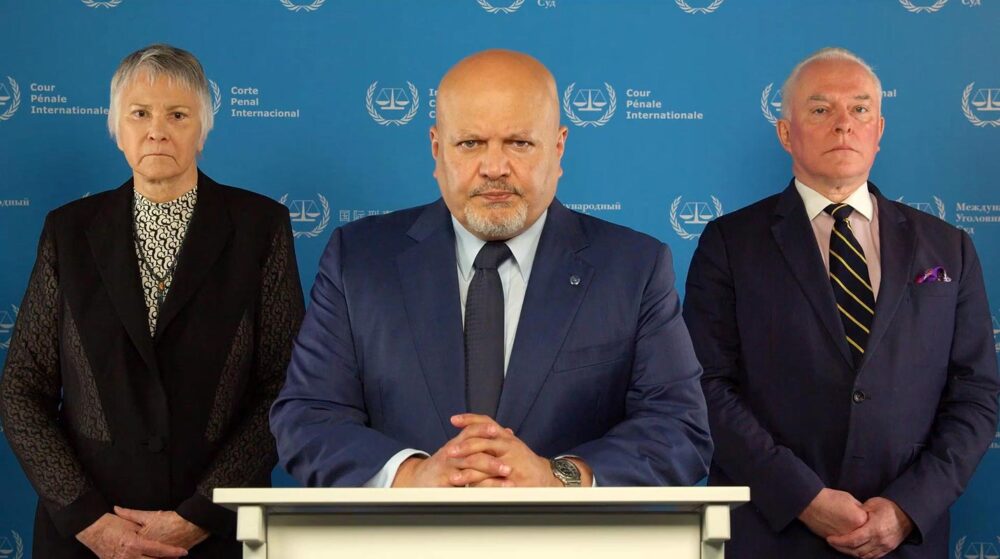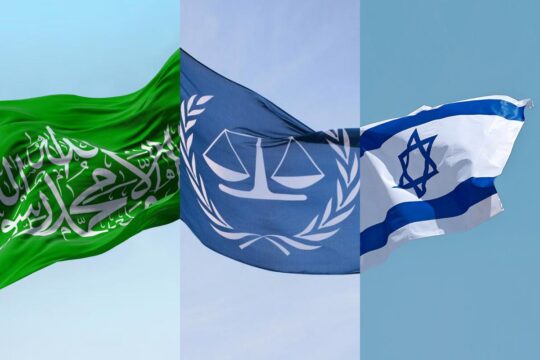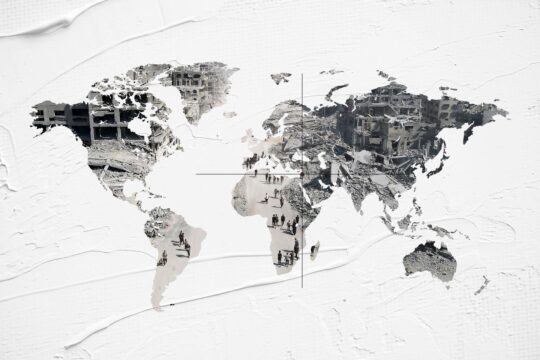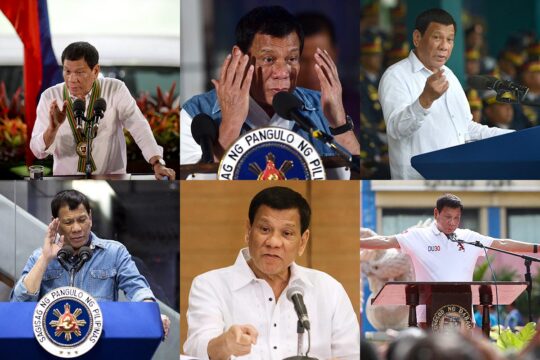Speculation has been rife for the last few weeks that officials at the International Criminal Court (ICC) were about to drop the biggest bombshell in the court’s history: an arrest warrant, not only for a sitting head of state (which had already been achieved against Sudan’s Bashir, Libya’s Gaddafi, and Russia’s Putin) but one for a close ally of many of the states’ parties to the court. And more importantly, an even closer ally to a country the ICC has relied on extensively for support behind the scenes – the United States of America. The court has never previously charged a Western-backed head of state.
ICC prosecutor Karim Khan announced on May 20 that he has applied for five arrest warrants. Two are for Israeli officials: Benjamin Netanyahu, the Prime Minister, and Yoav Gallant, the Minister of Defence. The three others are for the Hamas leaders in Gaza, Yahya Sinwar, the head of the military wing of Hamas the Al-Qassam Brigades Mohammed Deif, and the political head of the movement Ismail Haniyeh. All of them have allegedly committed crimes against humanity, including for extermination, and war crimes.
By making the announcement against Israeli and Hamas leadership, Khan is engaging in a very deliberate show of even-handedness. And he has also made clear that behind the scenes there was a careful round of consultations with experts before he made his announcement public in The Hague, on a Dutch public holiday. Many of those close to the investigation had speculated that the prosecutor could not afford to be seen to be taking one side or the other: there could only be arrest warrants for both parties to the current Israel-Gaza conflict.
Please check my workings
The ICC machine relies on the Office of the Prosecutor to produce evidence which is then assessed by judges of the Pre-Trial Chamber before warrants of arrest can be issued. It is the judges who decide.
In this case the prosecutor though used an extra step, cautiously having his homework marked, before sending his offering to the judges. An especially constituted Panel of experts in international law were given access to the evidence and asked to judge “whether there are ‘reasonable grounds to believe’ that the persons named in the warrants have committed crimes within the jurisdiction of the Court”. They were not asked to judge though some of the prosecutor’s other criteria - whether the initial cases were grave enough and whether there may be arguments about Israel’s ability to judge crimes within its own courts.
The individuals in the Panel are a mainly British who’s who of international law: former ICC judge Adrian Fulford, former ICTY president Theodor Meron (the only non-British though he is teaching in the UK), special advisor to the prosecutor barrister Amal Clooney, barrister Danny Friedman, barrister and Baroness Helena Kennedy (director of the International Bar Association Human Rights Institute) and Elizabeth Wilmshurst, former Deputy Legal Adviser at the United Kingdom Foreign and Commonwealth Office. In a show of support for the prosecutor the panelists also penned their own Op-ed in yesterday’s Financial Times.
Ever since Palestine became a member of the court, the pressure has been on for the Office of the Prosecutor to conduct an effective investigation. But once the parameters had been set by a ruling from the court in February 2021, that the ICC does indeed have territorial jurisdiction over the occupied territories of Gaza and the West Bank, including East Jerusalem, for any alleged crime committed there since 13 June 2014, the evidence has just piled up at the court’s doorstep from Palestine itself, NGOs and UN bodies. And that evidence became a deluge after the Hamas attack on Israel on October 7, 2023.
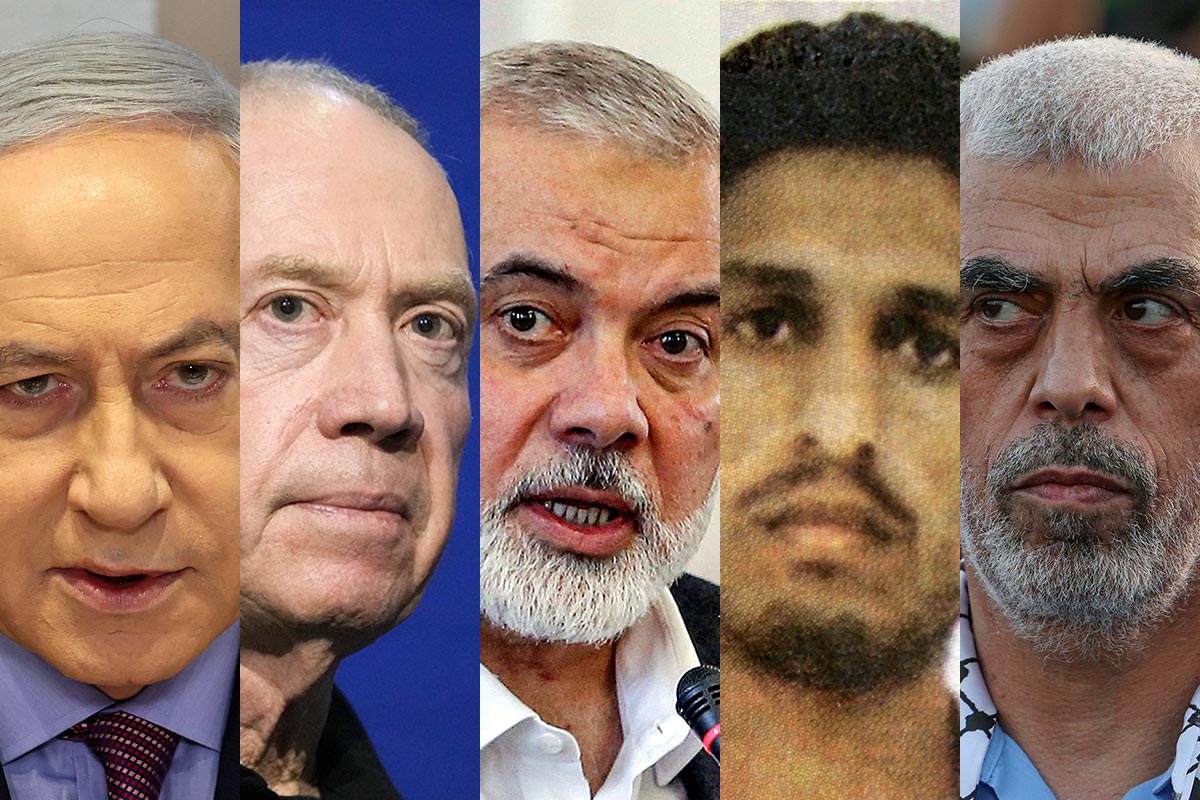
The A-team?
Khan is the third prosecutor of the institution and he has brought his own priorities. His tenure has thus far been characterised by his prioritisation of UN Security Council-delegated investigations and a willingness to close long-standing court engagements. He has also emphasised the responsibilities of national authorities to investigate themselves, sometimes with ICC support and - because of the willingness of Western countries to see accountability for international crimes in Ukraine - he has sought and received a small bonanza of cash and material support, which he has channelled into upgrading the evidence sorting system at the court.
Khan was flanked in press documents making the announcement by two key members in his office: Andrew Cayley and Brenda Hollis. Hollis, a former American military lawyer, was already in place and working directly for Khan supervising the Ukraine investigations which have delivered - so far - four arrest warrants, for two different sets of alleged crimes. She was previously prosecutor at a number of international tribunals and had handled the independent enquiry into the ICC Prosecutor’s Office’s failures in the Kenya investigation. A key appointment in March this year was of a long-standing former colleague of Khan’s, British barrister Andrew Cayley, a former chief prosecutor at the Khmer Rouge tribunal, among many other positions at UN tribunals. Both the Ukraine and Palestine teams report directly to Khan rather than via the deputy prosecutors who manage the day-to-day working of all the other 15 ongoing investigations and associated trials.
Cayley clearly sees Khan as a wily and capable operator and thinks Khan’s experience as a defence counsel means he is able to anticipate what is needed. “You need the poacher basically advising against the gamekeeper,” he said while in conversation with Kevin Jon Heller, now Khan’s special adviser on war crimes. Cayley brings to the Palestine investigation an understanding of military structures which he says had put him “at great advantage” while working at the UN Yugoslav court, because he “could see through any kind of nonsense the defence was putting forward” and explain to his colleagues that “military organisations do not work like this”.
When it comes to the political pressures clearly swirling around the Palestine investigation, Cayley has seen political interference in a tribunal at close hand while co-investigating prosecutor at the Khmer Rouge tribunal in Phnom Penh. “It became almost debilitating. It was that hard,” he said. Cayley famously managed to persuade the previous prosecutor of the ICC Fatou Bensouda to drop an investigation into alleged crimes committed by UK soldiers in Iraq. He says he spent a final day with the Prosecutor’s team and discussed the 6-10 cases that were “close to the line” and could potentially have been prosecuted. He showed them the independent advice he had asked for and received from independent counsels – “people with 20-30 years prosecution experience” – who all agreed, he said, there was not enough evidence. Most scathingly he was unimpressed by the experience of those he was then up against in The Hague. He described the ICC team then as full of individuals “most of whom had ever done a trial in their life”. Maybe the opinions of the expert panel this time round is meant to help to scotch such criticism.
Ball with the judges
The decision-making now lies with the court’s pre-trial chamber I lead by Iulia Motoc of Romania alongside two other judges, Benin’s Reine Alapini-Gansou and Frenchman Nicolas Gissou. He replaced the Mexican judge originally assigned, who asked to be swapped because her husband's job as deputy minister of foreign affairs of Mexico "could affect the appearance of impartiality". The decision, by the court's presidency, was made in April 2024 but only became public on May 20. They kept it secret "due to significant media speculation concerning the activity of the Court in the situation in the State of Palestine and the desire to avoid any risk that the Request may be seen as confirming such speculation". There is no set time limit for judges to assess the evidence presented by the Prosecutor before agreeing or not that there are “sufficient grounds to believe” that there is evidence for the issuance of an arrest warrant.
Motoc herself is considered as one of the more experienced judges to work at the court, despite only joining in March this year. She has “served as a judge on the domestic, regional, and universal level for 20 years,” including the European Court of Human Rights, says her official questionnaire submitted to States to assess her suitability. She has been a UN Special Rapporteur on Human Rights in the Democratic Republic of the Congo (DRC) in 2001-2004. She says she was “the first UN expert to visit the remote regions in North and South Kivu and Ituri provinces,” in Eastern DRC, where she “conducted interviews with many victims of war crimes and crimes against humanity in these areas, most of them living in extreme poverty and in precarious situations. These included women who had suffered sexual violence or were mutilated, as well as child soldiers.” And she is proud that some of the people she identified as alleged perpetrators of international crimes ended up at the ICC.
She also writes that “it is paramount that the Court’s organs can conduct the judicial and prosecutorial activities freely and without political interference from the state parties or any other outside force”. And “like in a domestic context, judges must be eternally vigilant to confine the impact of political bodies to their realm and not let them influence essentially judicial tasks.”
But political pressure on the Hague-court will continue, as evidenced by reactions from the United States, Israel or Hamas immediately after the announcement by Khan. “The ICC, and in particular, the OTP [Office of the Prosecutor], is under a full-court press that include[s] intimidating rhetoric and threats to cease and desist in whatever measures are being contemplated against senior Israeli government and military officials. Some of these tactics are specifically designed to interfere with the ICC’s independence and unduly influence, negatively, the OTP,” wrote Michael Karnavas, a seasoned defence attorney, in his blog before the announcement. This is a high-stakes endeavour, and the evidence is going to have to be of a quality that the judges agree that the process deserves to go forward.
“Before I became Special Adviser [to Khan], I spent years criticizing the ICC for playing politics with international criminal justice. I can say unreservedly I have never heard *anyone* on the Palestine team discuss the political implications of applying for arrest warrants. Not once,” wrote yesterday the special advisor on war crimes Kevin Jon Heller on X (formerly Twitter).
The prosecutor has said that the Palestine investigation continues. So this announcement is unlikely to be the last. And many questions remain on what the scope of the investigation will be, and whether the prosecutor will tackle some of the underlying issues such as settlements in the occupied territories, beyond the most immediate conflict.
This article was updated on June 7, 2024.


